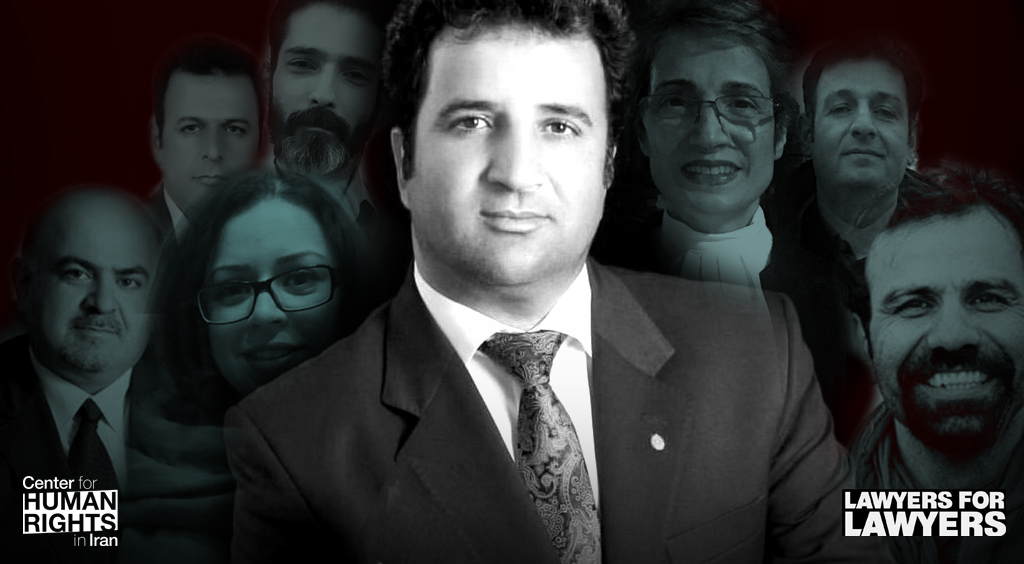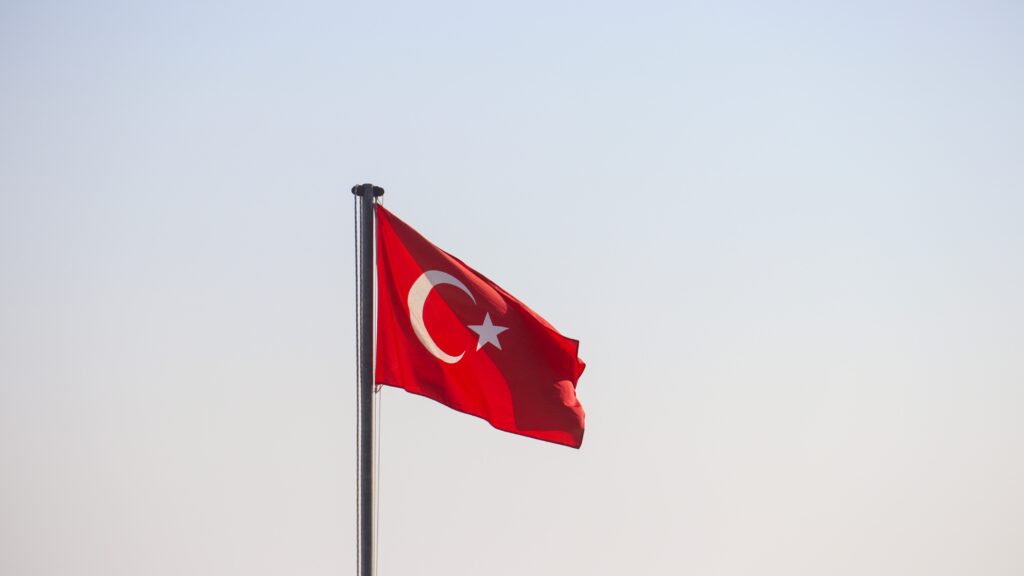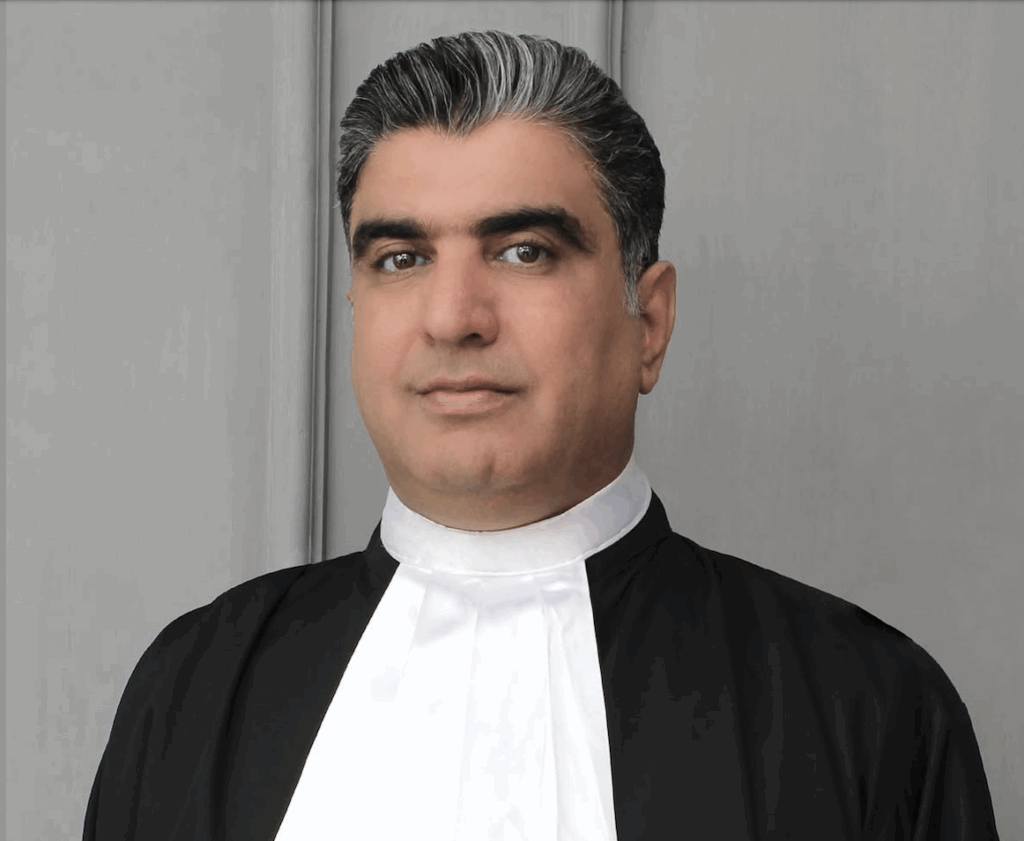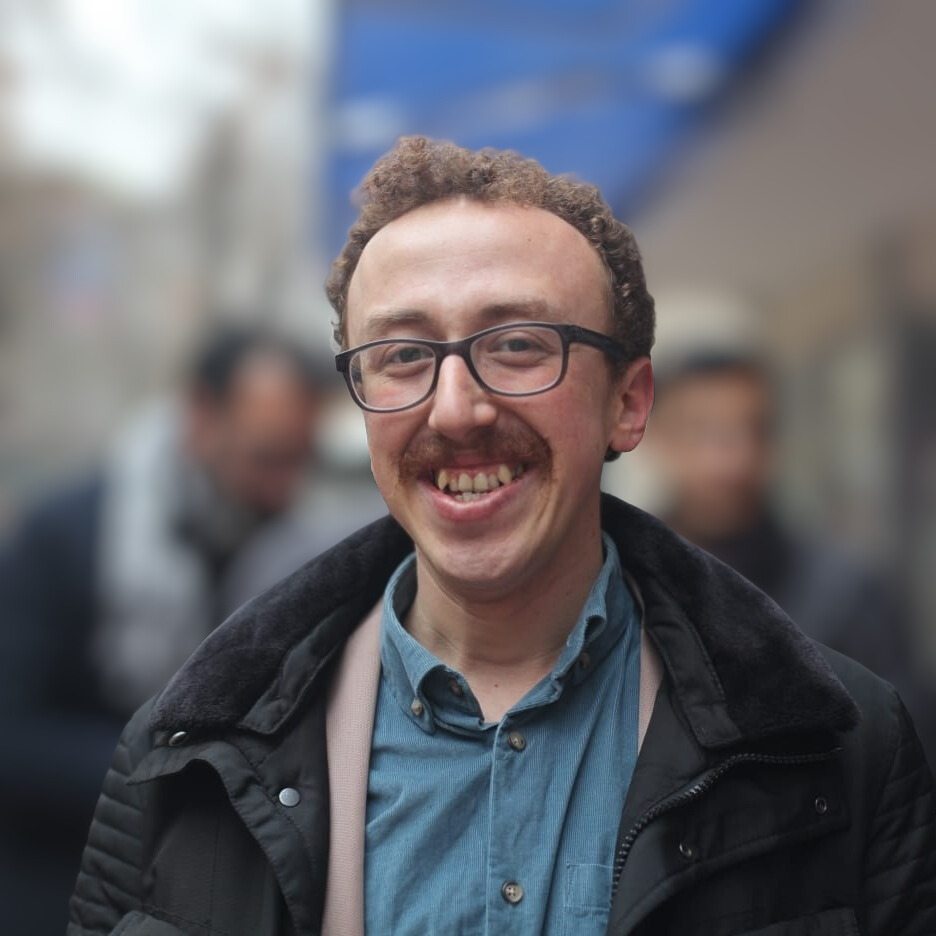The lawyer Mohammad Najafi, who has been unlawfully and unjustly imprisoned in Iran since 2018 on multiple convictions for his defense of basic civil and political liberties and is currently serving a 54-month prison sentence, should be freed immediately, Lawyers for Lawyers and the Center for Human Rights in Iran (CHRI) said in a joint statement today.
“Najafi has been slammed with one sham conviction after the next in order to keep him behind bars, because the authorities fear his determination to speak truth to power and defend basic human rights,” said Hadi Ghaemi, CHRI executive director.
“Lawyers are the last line of defense against autocrats who would silence all dissent; when they cannot do their job, society as a whole becomes imprisoned,” Ghaemi added.
Following is the statement:
Lawyers for Lawyers and the Center for Human Rights in Iran (CHRI) call on the authorities in Iran to unconditionally and immediately release human rights lawyer Mr. Mohammad Najafi, as he was arrested for lawful activities and peaceful dissent and his prosecution has no legal merit.
Based on Article 35 of Iran’s constitution, people “have the right in all courts of law to select an attorney,” and therefore there must be guarantees in all circumstances that all lawyers in Iran are able to carry out their legitimate professional activities without fear of reprisals and free of all restrictions including harassment by the judicial and security establishment.
We further urge the international community, including the United Nations (U.N.) High Commissioner for Human Rights, the U.N. Human Rights Council, the U.N. Special Rapporteurs on human rights in Iran, on human rights defenders, and on the independence of judges and lawyers, as well as all Member States, to forcefully call on the authorities in Iran to immediately and unconditionally release Mr. Najafi.
Given Mr. Najafi’s history of heart disease and other serious illnesses, we also note that at a minimum, his sentence could be reduced to a fine, in accordance with Articles 502 and 522 of Iran’s Code of Criminal Procedure, which states a prisoner’s sentence can be suspended if incarceration could make their illness worse.
We strongly condemn the Iranian authorities’ longstanding and continuous persecution of Mr. Najafi for his defense of human rights. While Najafi had been harassed and arrested by the authorities in Iran repeatedly over the years for his peaceful pro-democracy activities, in 2018, when Najafi was practicing law in Arak, central Iran, he investigated the suspicious death of Vahid Heydari, a detained street protester who died while in police custody in January 2018. “This young man was a protester,” Najafi told CHRI on January 8, 2018. “They arrested him and then they beat and killed him.”
For his efforts, and for informing media outlets that local prison authorities had tried to cover up the cause of death, Najafi was sentenced in August 2018, to three years in prison and 74 lashes for “disturbing the public order” and “publishing falsehoods.” The sentence was upheld in October 2018 and he was taken to Arak’s Central Prison to serve his term.
This sham conviction was followed by others, without due process and while he was imprisoned, in quick succession. In December 2018, he was sentenced to one year in prison for “propaganda against the state,” two years in prison for “insulting the Supreme Leader,” 10 years in prison for “collaboration with enemy states through transferring news and information in interviews with the Voice of America, Radio Farda and BBC Persian,” and an additional year for “disturbing public opinion” based on his posts on social media critical of the Islamic Republic.
In January 2020, Mr. Najafi was sentenced to another two years in prison for “publishing falsehoods with the intention to disturb public opinion” in connection with an open letter of protest he wrote to Supreme Leader Ali Khamenei on September 8, 2018, and on February 2020, he was sentenced to six months in prison for a speech he made at a ceremony honoring Sattar Beheshti, a blogger who died under torture in police custody in 2012. On July 2, 2021, he was once again charged with “propaganda against the state” for calling for a boycott of the presidential elections, changing the constitution and the removal of Khamenei.
All of these convictions were unlawful violations of Mr. Najafi’s right to freedom of expression and aimed at curbing his legitimate activities as a lawyer.
Article 16 of the U.N. Basic Principles on the Role of Lawyers states that governments must ensure that lawyers “are able to perform all of their professional functions without intimidation, hindrance or improper interference.” The Principles further require that lawyers “shall not suffer, or be threatened with, prosecution or administrative, economic or other sanctions for any action taken in accordance with recognized professional duties, standards, and ethics.” They further stipulate that lawyers, like any other individuals, have the right to freedom of expression. In particular, they have the right to take part in public discussion of matters concerning the law, the administration of justice and the promotion and protection of human rights (Article 23 of the U.N. Basic Principles on the Role of Lawyers).
Under Iranian law, a prisoner with multiple convictions serves only the heaviest sentence, which in Najafi’s case was 10 years in prison. However, with the subsequent application of recent reductions in prison sentences ordered by the judiciary, his current term has been reduced to 54 months in prison.
Mr. Najafi is not alone. We note that human rights lawyers in Iran are increasingly under attack by the State. The Iranian judiciary’s ongoing persecution of independent defense lawyers under manufactured charges is central to the Iranian authorities’ strategy to silence and crush dissent in Iran. By imprisoning or otherwise silencing human rights lawyers, activists, dissidents and other human rights defenders can be more easily prosecuted without challenge under sham charges and without any semblance of due process or fair trial rights.
Mr. Najafi is but one of many human rights lawyers who have been harassed, threatened, suspended or banned from work, arrested and unjustly imprisoned by the authorities in Iran. Indeed, Iranian lawyers have noted there are now few lawyers left in Iran who are able and willing to take on human rights cases.
Just a few of the lawyers who have been heavily persecuted for the defense of basic civil rights and liberties in Iran in recent years include Nasrin Sotoudeh, Abdolfattah Soltani, Nasser Zarafshan, Giti Pourfazel, Arash Keykhosravi, Mostafa Nili, Farzaneh Zilabi, Peyman Derafshan, Amirsalar Davoudi, Mohammad Ali Dadkhah, Mohammad Reza Faghihi, Javad Alikordi, Mostafa Daneshou, Hoda Amid, Mohammad Seifzadeh, Ramazan Hajimashhadi, Farhad Mohammadi and Mohammad Hadi Erfanian Kaseb.
In addition, these pressures have forced some attorneys to leave the country in recent years, including Saeid Dehghan, Mohammad Moghimi, Ghasem Sholeh Sa’di, Hossein Ahmadiniaz and Mazdak Etemadzadeh.
The courts in Iran are working hand in hand with intelligence agencies to go after independent lawyers so that any hopes for defending due process—or basic civil and political liberties in Iran—are extinguished. We urge the international community to speak out forcefully and with one voice against this unlawful and unjust practice, and for Member States to raise this issue, including the specific case of Mr. Mohammad Najafi, directly and repeatedly when meeting with their Iranian counterparts.
Center for Human Rights in Iran, New York
Lawyers for Lawyers, The Netherlands




